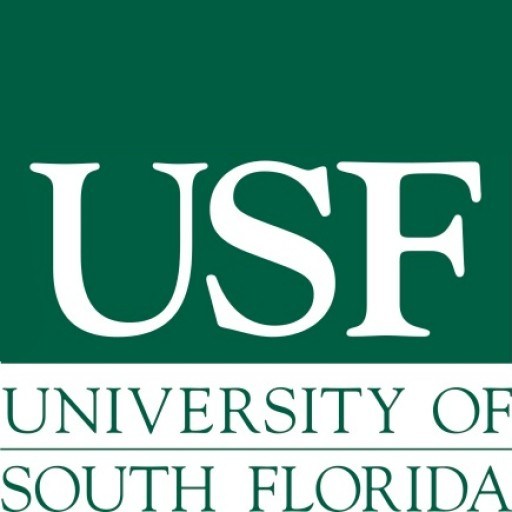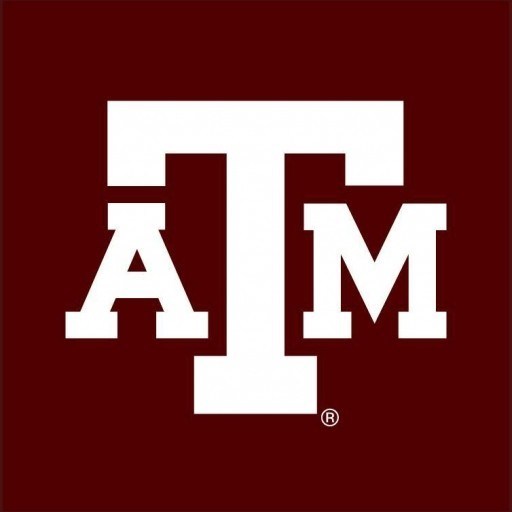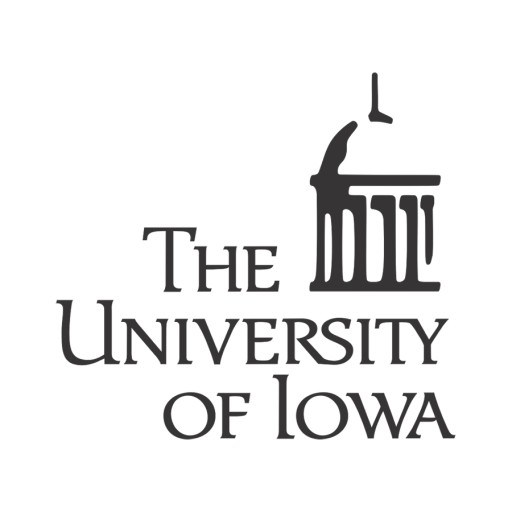Photos of university / #uofnm
The Bachelor of Science in Computer Science at The University of New Mexico offers students a comprehensive and rigorous education in the fundamental principles and practical applications of computing. Designed to prepare graduates for diverse careers in technology, research, and industry, the program emphasizes both theoretical understanding and hands-on experience. Students will explore core areas such as programming, algorithms, data structures, software engineering, computer architecture, and operating systems. The curriculum also offers specializations in emerging fields such as artificial intelligence, machine learning, cybersecurity, and data science, allowing students to tailor their education to their interests and career goals.
Throughout the program, students engage in collaborative projects, internships, and research opportunities that foster problem-solving skills and innovation. The faculty members are experienced researchers and practitioners dedicated to mentoring students and advancing knowledge in the field. The program incorporates modern teaching methods, state-of-the-art laboratories, and computing resources to ensure students have access to the tools needed for success. Graduates of the Computer Science program at UNM are well-equipped to pursue advanced degrees, obtain positions in software development, systems analysis, network administration, and other specialized roles within the tech sector. Additionally, the program emphasizes ethical considerations and the societal impacts of computing, preparing students to become responsible professionals in a rapidly evolving digital landscape. Whether aiming for a career in industry or academia, students will gain a solid foundation and the adaptability necessary to thrive in the dynamic field of computer science.
The Master of Science in Computer Science (M.S.) can be completed under Plan I or Plan III. A brochure describing the program and requirements can be obtained from the department.
Plan I
In addition to all Graduate Studies requirements for the master’s degree, the department also requires the following:
- 32 credit hours of approved graduate courses.
- At least 2 credit hours of CS 592 (Colloquium), taken at UNM.
- At least 26 of the 32 credit hours must be in courses offered by the Computer Science department at the 500-level or above.
- Completion of a minimum of two courses from each category below with a grade of B- or better:
- a. Mathematical Methods – CS 500, 530, 550, 558, 561.
- b. Empirical Methods – CS 512, 522, 523, 527, 529, 547.
- c. Engineering/System Building Methods – CS 554, 580, 585, 587.
- Passing the master’s examination. For Plan I students, the master’s examination is the defense of thesis.
Plan III
In addition to all Graduate Studies requirements for the master’s degree, the department also requires the following:
- 32 credit hours of approved graduate courses.
- At least 2 credit hours of CS 592 (Colloquium), taken at UNM.
- In addition to Colloquium, at least 24 of the 32 credit hours must be in courses offered by the Computer Science Department at the 500-level or above.
- Completion of a minimum of two courses from each category below with a grade of B- or better:
- a. Mathematical Methods – CS 500, 530, 550, 558, 561.
- b. Empirical Methods – CS 512, 522, 523, 527, 529, 547.
- c. Engineering/System Building Methods – CS 554, 580, 585, 587.
Courses
- CS 341L. Introduction to Computer Architecture and Organization. (3)
- CS 351L. Design of Large Programs. (4)
- CS 357L. Declarative Programming. (3)
- CS 361L. Data Structures and Algorithms. (3)
- CS 362. Data Structures and Algorithms II. (3)
- CS 365. Introduction to Scientific Modeling. (3)
- CS *375. Introduction to Numerical Computing. (3)
- CS 390. Topics in Computer Science for Non-Majors-Undergraduate. (1-3, no limit Δ)
- CS 412. Introduction to Computer Graphics: Scanline Algorithms. (3)
- CS 413. Introduction to Ray and Vector Graphics. (3)
- CS 422 / 522. Digital Image Processing. (3)
- CS **423. Introduction to Complex Adaptive Systems. (3)
- CS 427 / 527. Principles of Artificially Intelligent Machines. (3
- CS 429 / 529. Introduction to Machine Learning. (3)
- CS 442 / 542 [*442]. Introduction to Parallel Processing. (3)
- CS 444 / 544. Introduction to Cybersecurity. (3)
- CS 454 / 554. Compiler Construction. (3
- CS 456 / 556. Advanced Declarative Programming. (3)
- CS **460. Software Engineering. (3)
- CS 464 / 564. Introduction to Database Management. (3)
- CS 467 / 567. Principles and Applications of Big Data. (3
- CS *471. Introduction to Scientific Computing. (3)
- CS **481. Computer Operating Systems. (3)
- CS **485. Introduction to Computer Networks. (3)
- CS 491. Special Topics-Undergraduates. (1-6 to a maximum of 12 Δ
- CS 495 / 595. Advanced Topics in Computer Science. (3, no limit Δ)
- CS 499. Individual Study-Undergraduate. (1-3 to a maximum of 6 Δ)
- CS 500. Introduction to the Theory of Computation. (3)
- CS 506. Computational Geometry. (3
- CS 510. Mobile Computing. (3)
- CS 512. Introduction to Computer Graphics [Advanced Image Synthesis]. (3)
- CS 520. Topics in Interdisciplinary Biological and Biomedical Sciences. (3, unlimited Δ)
- CS 521. Data Mining Techniques. (3
- CS 522 / 422. Digital Image Processing. (3)
- CS 523. Complex Adaptive Systems. (3)
- CS 527 / 427. Principles of Artificially Intelligent Machines. (3)
- CS 529 / 429. Introduction to Machine Learning. (3
- CS 530. Geometric and Probabilistic Methods in Computer Science. (3)
- CS 531. Machine Learning [Pattern Recognition]. (3)
- CS 532. Computer Vision. (3)
- CS 533. Experimental Methods in Computer Science. (3
- CS 542 / 442. Introduction to Parallel Processing. (3)
- CS 544 / 444. Introduction to Cybersecurity. (3)
- CS 547. Neural Networks. (3)
- CS 550. Programming Languages and Systems. (3
- CS 551. Individual Study-Graduate. (1-3 to a maximum of 6 Δ)
- CS 554 / 454. Compiler Construction. (3)
- CS 555. Advanced Topics in Compiler Construction. (3
- CS 556 / 456. Advanced Declarative Programming. (3)
- CS 558. Software Foundations. (3)
- CS 561. Algorithms/Data Structure. (3)
- CS 564 / 464. Introduction to Database Management. (3)
- CS 565. Topics in Database Management. (3)
- CS 567 / 467. Principles and Applications of Big Data. (3)
- CS 575. Introductory Numerical Analysis: Numerical Linear Algebra. (3
- CS 576. Introductory Numerical Analysis: Approximation and Differential Equations. (3)
- CS 580. The Specification of Software Systems. (3)
- CS 581. Fundamentals of Software Testing. (3
- CS 583. Object-Oriented Testing. (3)
- CS 585. Computer Networks. (3)
- CS 587. Advanced Operating Systems. (3)
- CS 590. Topics in Computer Science for Non-Majors-Graduate. (1-3, no limit Δ)
- CS 591. Special Topics-Graduate. (1-6, no limit Δ)
- CS 592. Colloquium. (1 to a maximum of 4 Δ)
- CS 595 / 495. Advanced Topics in Computer Science. (3, no limit Δ)
- CS 599. Master's Thesis. (1-6, no limit Δ)
- Completed international admissions application
- Must hold a bachelor's degree from an accredited college or university in the United States or its equivalent in another country.
- Generally, applicants must have a cumulative grade point average of at least 3.0 (B) or its equivalent in their last two undergraduate years and in their major field.
- $70.00 application fee
- Official English language proficiency results from either the TOEFL, IELTS, PTE-Academic, or Cambridge CPE or CAE
- Complete transcripts and degree certificates with official English translations, if necessary, from all post-secondary schools attended must be uploaded to the graduate application
- Official academic transcripts and degree certificates and with official English translations, if necessary, from all post-secondary institutions attended
- Financial Responsibility form and official bank statements
The University of New Mexico offers a comprehensive range of financial aid options to support students enrolled in its Computer Science undergraduate and graduate programs. Students are encouraged to explore multiple sources of funding to help cover tuition fees, living expenses, and other educational costs. Federal and state financial aid programs, including Pell Grants, Federal Work-Study, and federal student loans, are available for eligible students pursuing their degrees at UNM. These aid programs require the submission of the Free Application for Federal Student Aid (FAFSA), which must be completed annually to determine eligibility. Additionally, UNM provides institutional scholarships based on academic performance, merit, and need, which students can apply for through the university's scholarship portal. Graduate students in Computer Science have access to specific assistantship opportunities, such as teaching and research assistantships, which typically include a waiver of tuition fees and a stipend to support living expenses. External scholarship programs, provided by private organizations and industry partners, are also available and can be found through various scholarship databases and professional associations. Furthermore, some students may qualify for state-funded grants or tuition waivers, especially residents of New Mexico. For international students, financial aid options are more limited, but scholarships specifically for international students and private funding sources may be available. To support students in planning their finances, UNM offers financial aid advising services that help identify suitable funding options and assist with application processes. The university also provides information about payment plans, loan management, and work-study opportunities to ensure students can manage their financial commitments effectively. Overall, the University of New Mexico is committed to making education accessible through a diverse array of financial assistance programs tailored to the needs of its student body studying Computer Science.
The Bachelor of Science in Computer Science at the University of New Mexico is a comprehensive undergraduate program designed to provide students with a strong foundation in the principles and practices of computing. The curriculum combines theoretical knowledge with practical skills, preparing graduates for careers in software development, systems analysis, cybersecurity, data science, and other technology-driven fields. Students have the opportunity to learn programming languages such as Python, Java, and C++, as well as foundational topics like algorithms, data structures, computer architecture, and operating systems. The program also emphasizes software engineering, database management, and web development, equipping students with the necessary skills to design, implement, and maintain complex software systems.
In addition to core technical courses, students are encouraged to develop problem-solving and analytical skills through project-based coursework and collaborative team projects. The program integrates emerging topics such as machine learning, artificial intelligence, and cybersecurity to ensure that graduates are prepared for the rapidly evolving technology landscape. Students have access to state-of-the-art laboratories and computing resources, enabling hands-on experience with real-world problems. The university fosters an inclusive academic environment, offering various support services including faculty mentorship, tutoring, and research opportunities.
The Bachelor of Science in Computer Science at UNM often includes options for specializations or minors in related fields such as mathematics, electrical engineering, or information systems. Internships and cooperative education programs are strongly encouraged, providing students with valuable industry experience. The program prepares students for advanced study, including master's and doctoral programs, or for immediate employment in the tech industry. Graduates have gone on to work for major companies, startups, government agencies, and research institutions. The university also emphasizes ethical considerations in computing, fostering responsible and socially aware professionals. Overall, the Computer Science undergraduate program at UNM aims to develop proficient, innovative, and ethical computing professionals equipped to meet current and future technological challenges.










